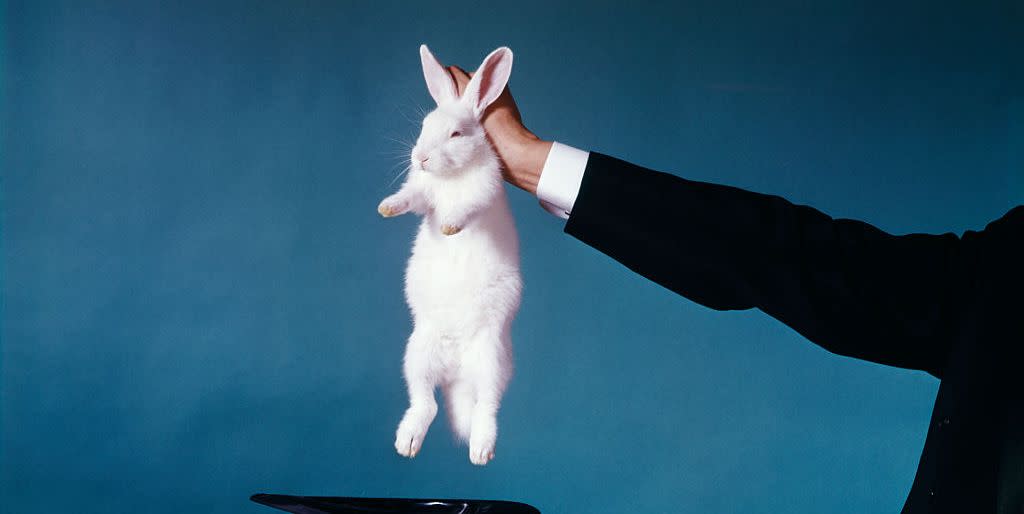How the Pandemic Made Magic Shows Magical Again

Call it the great presto change-o. Not so long ago, magic shows were easily dismissed as a staple of corny backyard birthday parties or cringe-inducing nightclub acts. But in recent months a slate of cultivated conjurers have done the seemingly impossible: They’ve made virtual magic shows some of the most in-demand entertainment options around, drawing sold-out audiences around the globe and generating monthslong waiting lists. Still, the question asked of magicians since time immemorial seems more relevant than ever: How’d you do it?
“Magic is fantasy,” says Jason Suran, whose virtual show Reconnected is produced by Alan Cumming and has been visited by the likes of Julianna Margulies and Edie Falco. “It’s a way of looking at the world through a lens of wonder.” Suran likens his intimate show, which is capped at around 30 guests, to what’s known as parlor magic, which he would normally perform in private homes. But now attendees gather on Zoom, leaning in to witness Suran’s feats of physical daring, seemingly impossible sleights of hand, and apparent mind reading.
“There is something inherently social and personal about mentalism that feels particularly good right now,” he says. “It’s the only medium that looks back at the audience.” All attendees must keep their cameras on during the show, as it facilitates audience participation. “For a mentalist, there’s nothing better than having a camera in everybody’s house,” Suran says. And this dynamic works both ways: Close-ups also allow attendees a good look at Suran’s more delicate tricks, from cards on a table to his close encounters with sharp objects.
Hands-on engagement distinguishes these diversions from other things you might dial into from home. A capsule filled with handsome props, like a pendulum, playing cards, and sealed envelopes, arrives ahead of performances by Helder Guimarães (who weaves personal narrative into his show, which is directed by Frank Marshall for L.A.’s Geffen Playhouse) and Dan White (who has turned his residency at Manhattan’s NoMad Hotel into a virtual set that has attracted such guests as Ariana Grande, J.J. Abrams, and Chelsea Clinton). Belief in the promise of what these shows might have to offer is reinforced when viewers receive a package that comes with the command to leave it sealed until showtime.
Such a swell in appetite for enchantment amid adversity has historical precedent. Harry Houdini incited public fascination with the art of illusion around the turn of the century, and his disciples dazzled wide-eyed pleasure-seekers during the Roaring ’20s, following the influenza pandemic. “I think there’s a desperation for that wonder and hope and joy right now,” says Rob Lake, whose illusions tend to be grand in scale. The America’s Got Talent alum, who has pivoted to filmed interactive productions of his stage show, will continue his yearslong stint of performing for America’s armed forces with a streaming special this spring.
“Magic is not just an escape but an uplifting feeling, like when you’re watching Peter Pan fly for the first time,” Lake says. “There’s this brief moment when you feel like maybe anything can be possible.”
This story appears in the May 2021 issue of Town & Country. SUBSCRIBE NOW
You Might Also Like

